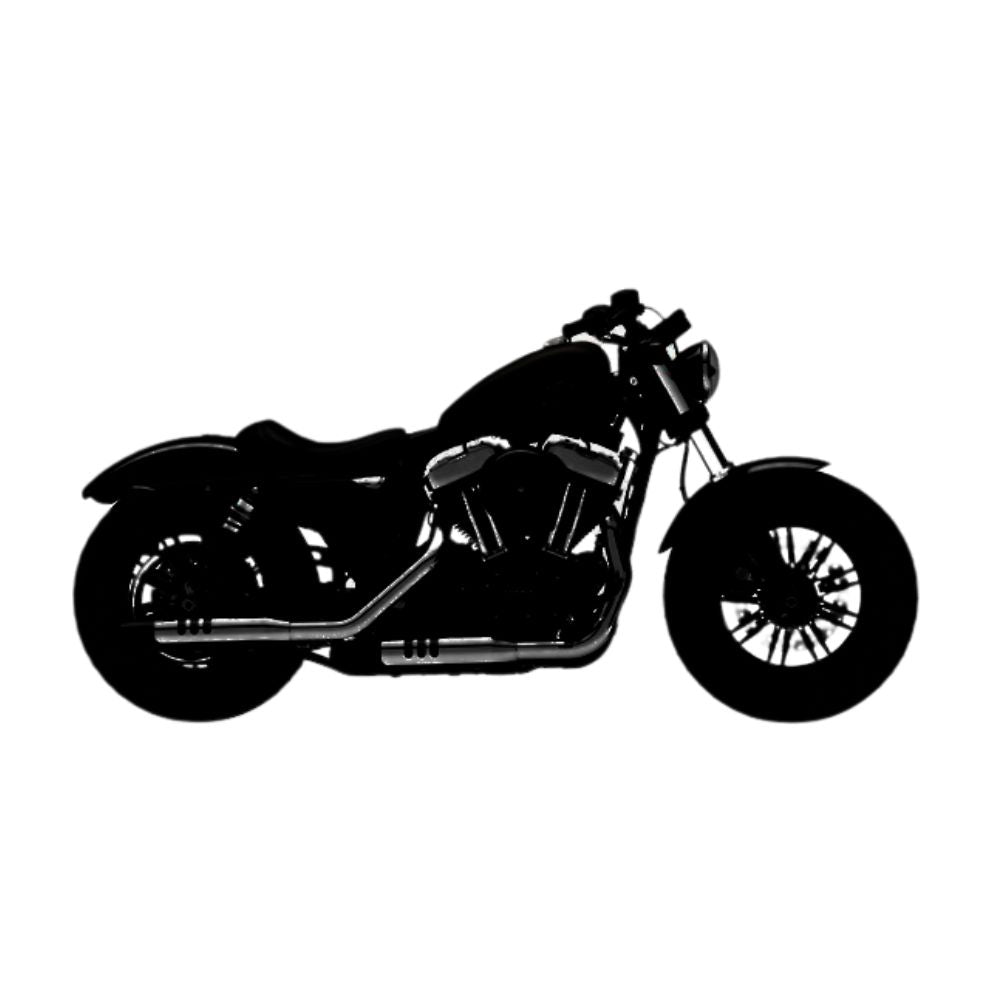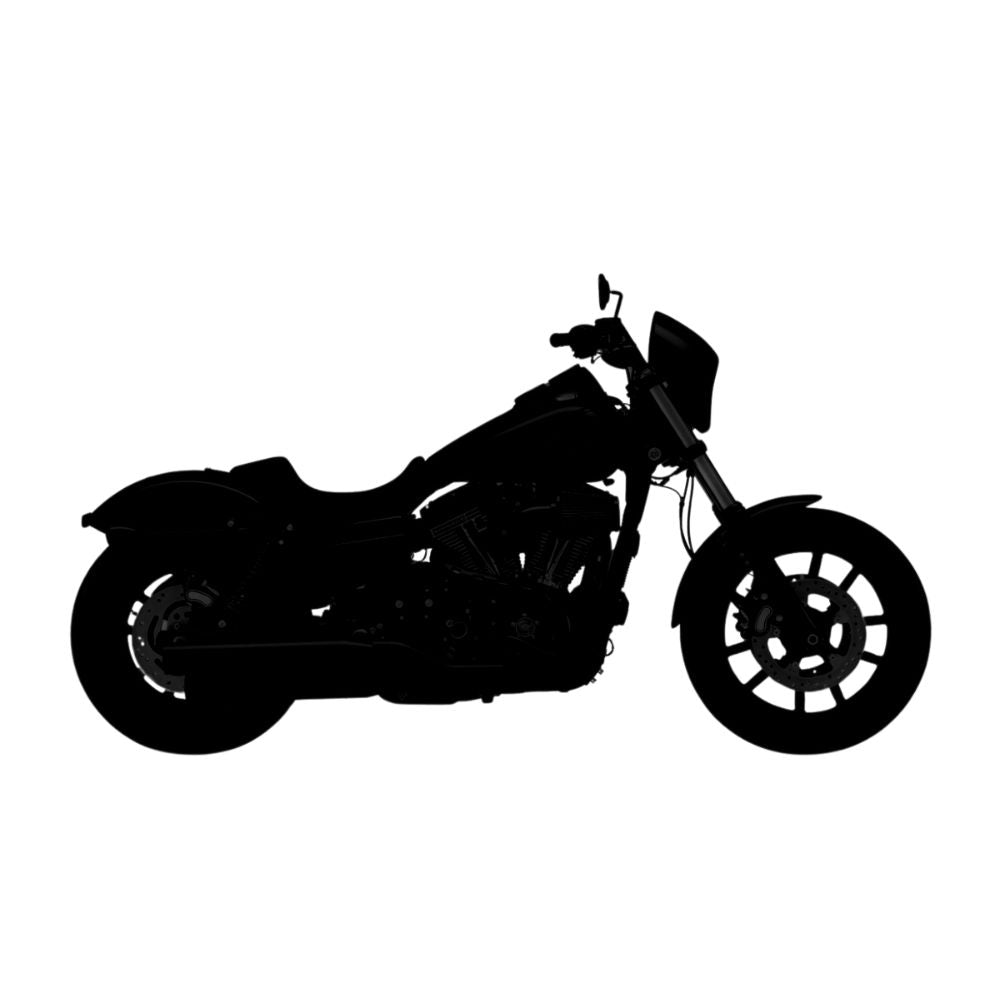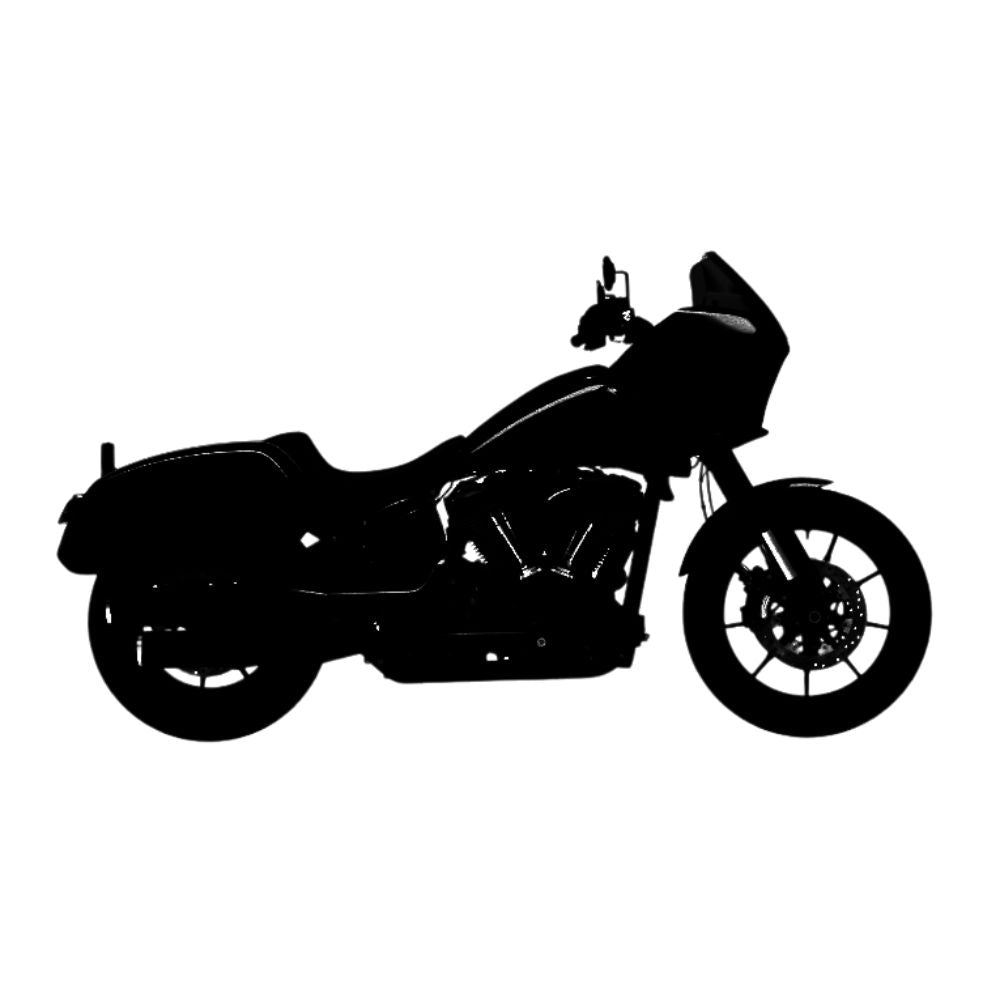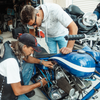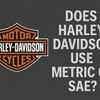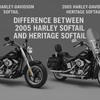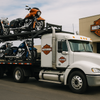The Revolution Max Platform
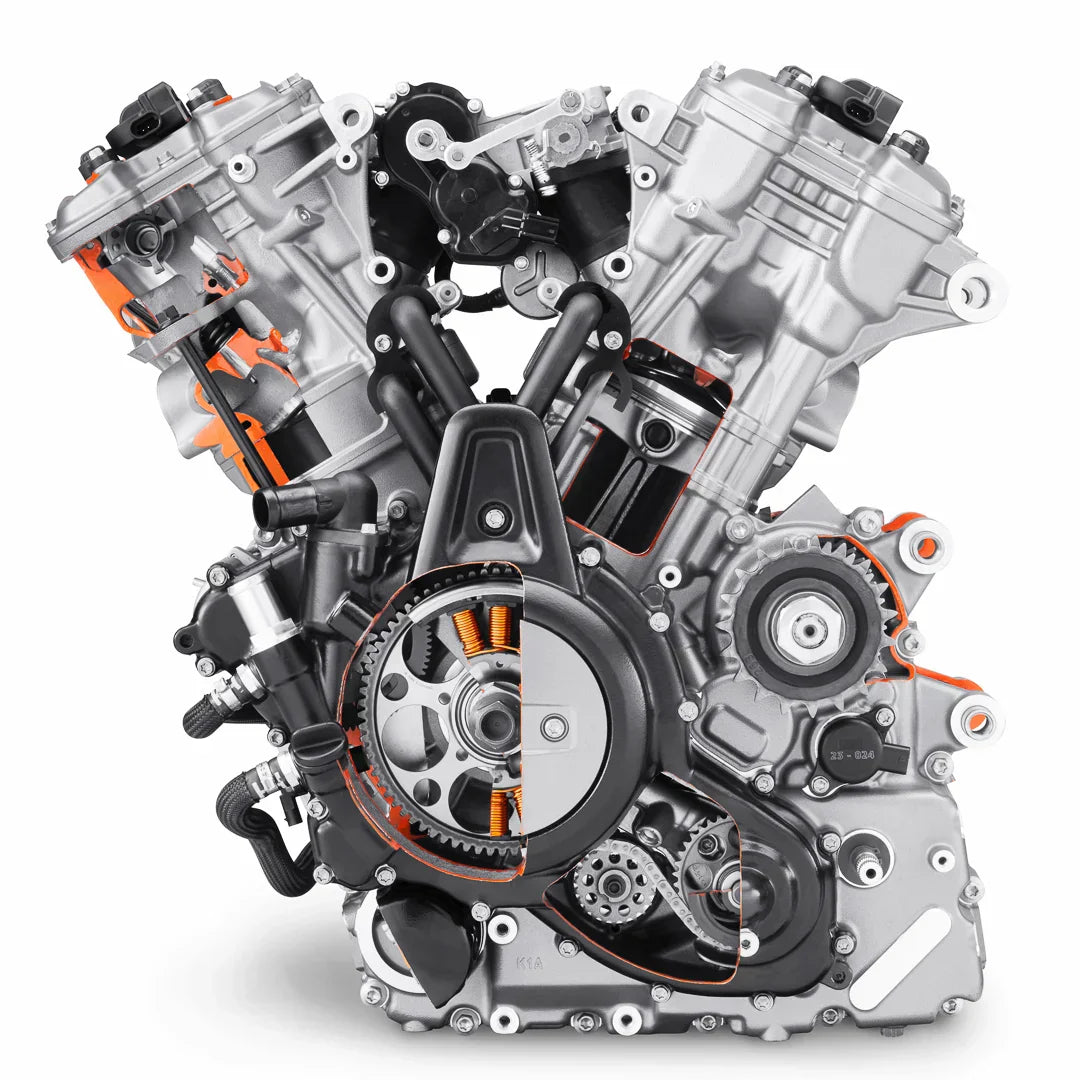
What Is the Revolution Max Platform?
Harley-Davidson’s Revolution Max engine represents a modern, liquid-cooled V-twin powertrain that also acts as a structural component of the chassis. This design eliminates some traditional frame elements, resulting in a more modular setup:
- Engine as Stressed Member: The front frame section, mid-frame, and tail section bolt directly to the engine.
- Lighter, More Rigid: By using the engine as the main load-bearing element, designers can reduce overall weight and improve rigidity.
- Enhanced Performance: This approach allows for more sophisticated suspension geometry, better handling, and a lower center of gravity.
Notable Models on the Revolution Max Platform
-
Pan America (1250/1250 Special)
- Type: Adventure Touring motorcycle (Harley’s first).
- Engine: Revolution Max 1250 (liquid-cooled, DOHC, variable valve timing).
-
Chassis/Frame Highlights:
- A modular structure: separate front frame, mid frame, and tail section all bolted to the engine.
- Long-travel suspension and higher ground clearance for off-road capability.
- Advanced electronics package (rider modes, semi-active suspension on the Special).
- Significance: Introduced in 2021, it showcases Harley’s pivot toward performance and global adventure touring market.
-
Sportster S (1250)
- Type: A high-performance, modern take on the Sportster lineage.
- Engine: Revolution Max 1250T (tuned differently from the Pan America).
-
Chassis/Frame Highlights:
- Compact design with the same modular concept, engine as the main frame element.
- Inverted front fork and performance-oriented rear shock.
- Aggressive, muscular styling and improved power-to-weight ratio compared to older air-cooled Sportsters.
- Significance: Launched in 2021, represents a major leap in horsepower and technology for the Sportster name.
-
Nightster (975)
- Type: Middleweight cruiser bridging classic Sportster style with the Revolution Max platform.
- Engine: Revolution Max 975T, slightly smaller displacement but still liquid-cooled and high-revving.
-
Chassis/Frame Highlights:
- Similar modular frame concept as the Sportster S, scaled down to match the 975cc engine.
- Leaner design compared to the Sportster S, with ergonomics aimed at a broader range of riders (lower seat height).
- Modern electronics (rider modes, traction control, etc.).
- Significance: Continues the Sportster evolution at a more accessible displacement and price point, targeting riders who want modern performance in a smaller, lighter package.
Key Differences Between the New Revolution Max Bikes and Traditional Harley Frames
-
Engine Mounting & Frame Design
- Traditional: Often used a separate steel frame with the engine either rubber-mounted (Dyna, Touring) or solid-mounted (older Sportsters). Softails use hidden shocks to mimic rigid frames.
- Revolution Max: The engine itself forms the heart of the chassis. The front, mid, and tail sections bolt directly to the engine.
-
Cooling
- Traditional: Primarily air-cooled (except V-Rod and Street series), which influences frame geometry and styling.
- Revolution Max: Liquid-cooled, allowing higher compression, more power, and better heat management.
-
Performance & Handling
- Traditional: Known for cruising comfort, classic looks, and torque at low RPMs.
- Revolution Max: More sport-oriented, higher rev range, lighter chassis, advanced suspension, and cutting-edge electronics.
-
Styling
- Traditional: Classic Harley silhouette, often heavier, with large steel backbones and more visible frames.
- Revolution Max: Modern lines, with the engine as a design centerpiece, smaller subframes, and optional bodywork for different riding styles (adventure, performance cruiser, etc.).
-
Electronics & Technology
- Traditional: Evolving over time, but typically more minimalistic electronics (ABS, cruise control, etc.).
- Revolution Max: Comprehensive rider aids, multiple power modes, advanced instrument clusters (TFT displays), and connectivity options.
Why These New Frames Matter
- Expanded Market Appeal: Models like the Pan America target the booming adventure bike segment, while the Sportster S and Nightster cater to riders wanting lighter, more agile bikes with modern performance.
- Innovation & Emissions: Stricter emissions standards and the need for global competitiveness push Harley-Davidson toward liquid-cooled designs and more efficient engines.
- Riding Experience: These new frames deliver improved handling, reduced weight, and a broader powerband, appealing to a new generation of riders who expect modern performance.
In Summary
Harley-Davidson’s newest models—the Nightster 975, Sportster S, and Pan America—introduce a Revolution Max platform that diverges from the classic frames (Sportster, Dyna, Softail, Touring). These bikes utilize the engine as a stressed member, feature advanced electronics, and offer a level of agility and power Harley historically reserved for niche models (like the V-Rod). Whether you prefer the comfort and tradition of a Softail or the cutting-edge performance of a Revolution Max bike, Harley-Davidson’s diverse frame lineup now spans the spectrum from timeless cruiser aesthetics to modern, high-performance engineering.

Rémi
Founder of Kafein Kustoms, Rémi is a passionate motorcycle enthusiast and the founder

